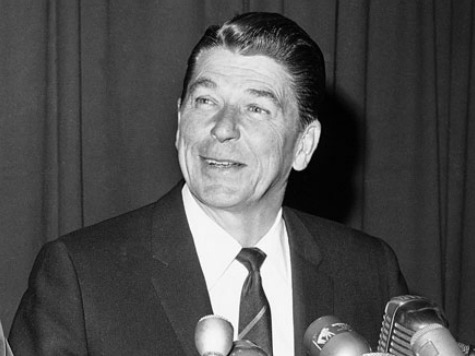
Noted Ronald Reagan historian Craig Shirley has doubled down on his plagiarism charge against liberal author Rick Perlstein. Shirley accused Perlstein of improperly citing or entirely failing to cite Shirley’s 2005 book, Reagan’s Revolution, in his new book, The Invisible Bridge: The Fall of Nixon and the Rise of Reagan.
Last month, Brietbart News reported that Perlstein’s book, published by Simon and Schuster, used online notes and citations instead of traditional ones, and Shirley pointed out over 50 instances in which he believes his books were used without accreditation.
Now, Martin Wooster, an author, researcher, and editor who was contacted by Shirley’s attorney to conduct an independent investigation, has released a report noting the similarity between Shirley and Perlstein’s works.
Wooster claims to have found, “unattributed direct uses of Mr. Shirley’s words, phrases, original expression and research,” in Perlstein’s book and noted the many potential problems created by using online citation.
“While an increasing amount of archival material is online, much is not, either because of copyright issues or because digitization takes time and money many archives don’t have,” Wooster said. Wooster also claimed that online sourcing can give an incomplete picture of the sources an author used and that even when found, many of those sources are simply incomplete.
Another problem that Wooster identified was that Perlstein failed to acknowledge his reliance on Shirley’s work in the text of the book, even though it was Shirley who poured through an enormous amount of original documents from the Reagan and Ford libraries to uncover information about Reagan.
Wooster said:
In conclusion, my review of Reagan’s Revolution and The Invisible Bridge revealed that Mr. Perlstein used Mr. Shirley’s words, phrases and original expression, as well as quotes and information developed in the course of Mr. Shirley’s original research, all without sufficient attribution or citation. Mr. Perlstein also appears to have been unusually reliant on Mr. Shirley’s analysis of newspaper and magazine articles, because out of very large stories, he repeatedly used in The Invisible Bridge the very same bits and pieces that Mr. Shirley used in Reagan’s Revolution. It is my opinion that these actions constitute plagiarism.
Breitbart News asked Shirley about Perlstein’s contact with him before The Invisible Bridge was released.
“The craziest part about this whole process is I only learned of the plagiarism after his publisher sent me a copy after he asked me to review his book,” Shirley said. “After going through it, I noticed a lot of sections looked awfully familiar. We then documented dozens of examples of specific plagiarism. Another odd thing is he claims we are friends but to the best of my recollection, we’ve only met once.”
Breitbart News also asked Shirley what he thought about the online citation usage, recently pointed out as controversial by the New York Times and New Yorker Magazine, and he said, “[Perlstein] did send me an e-mail saying all his friends hated the online citations. Even so, beyond the multiple examples of plagiarism, he also made many mistakes in his online citations, and he was recently taken to task by New Yorker Magazine for his shoddy practices.”
Perlstein has been critical of plagiarists in the past, attacking other historians such as Stephen Ambrose and Doris Kearns Goodwin.
In a 2002 Village Voice article, “How Doris Kearns Goodwin Came to Resemble Lyndon Johnson,” Perlstein went after the famed Lyndon Johnson biographer and prominent liberal historian with a scathing critique.
“Working for President Johnson, she must have become accustomed to the petty and unconsidered exploitations that are part of the prerogatives of power,” Perlstein wrote. “Powerful people expect to get away with behaving badly toward those less powerful than themselves. And this is the unspoken lesson of the revelations that Doris Kearns Goodwin and Stephen Ambrose are shameless plagiarists.”
Perlstein wrote that historians must live with an “abiding fear” that they will be called out for copying someone else’s work and he wondered “what it takes for a historian to drop this fear–the fear of being found out.”
Of the books and works that a historian uses for sources, Perlstein said, “how could they be anything but sacred? They are your superego, the very building blocks of your character.”
When asked why Perlstein might be inclined to plagiarize his work, Shirley told Breitbart News, “I can’t speak to Mr. Perlstein’s pathologies when it comes to his serial plagiarism of my work. I can only surmise he thought he might get away with lifting from my book. Or maybe it was just a cry for help! He described himself as being ‘parasitic’ in using others’ material, and liberal reviewer Sam Tannenhaus said Mr. Perlstein was a ‘web aggregator’ and nothing more.”

COMMENTS
Please let us know if you're having issues with commenting.